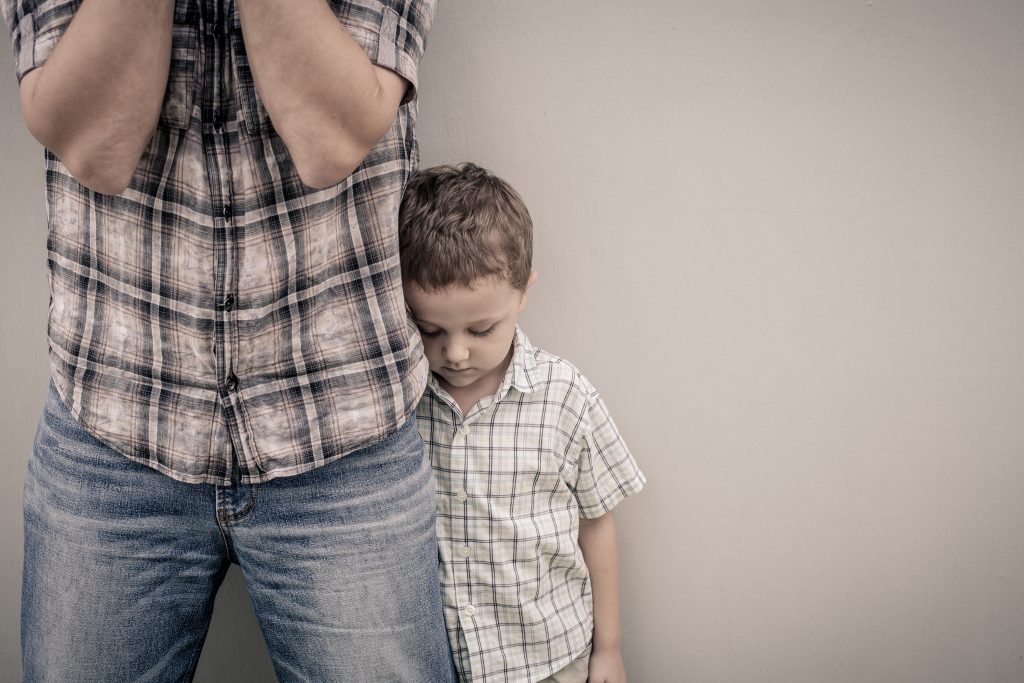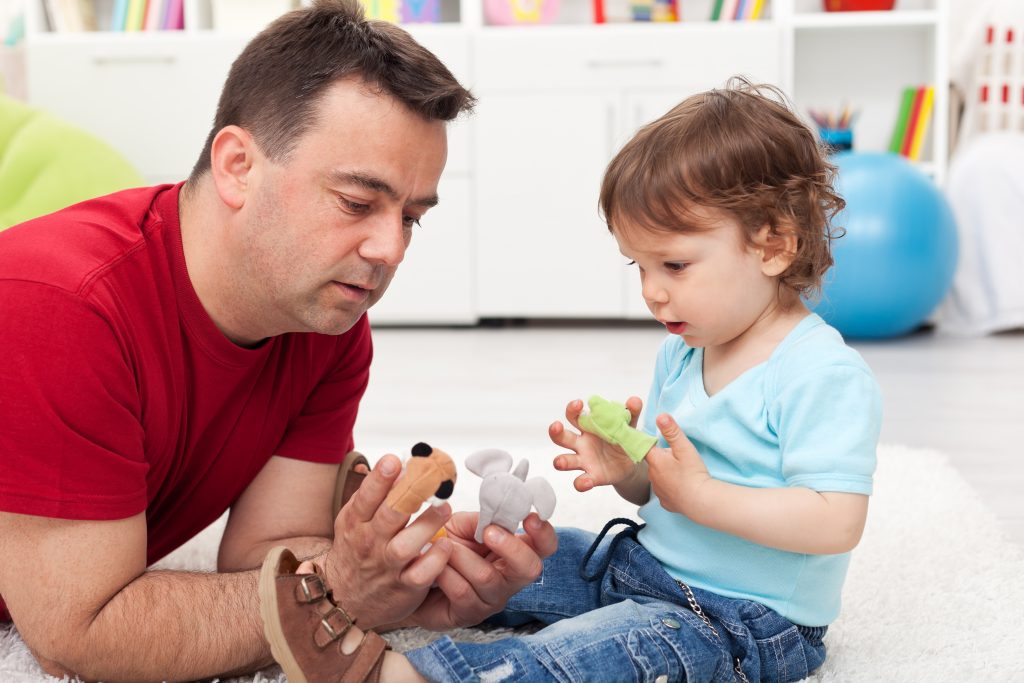It can be heartbreaking and devastating when children are caught between a narcissistic parent and the parent who is always trying to protect them from toxic, manipulative games.
If there’s one thing that often thwarts a woman’s attempts to free herself from a narcissistic partner, it’s the presence of children.
On the one hand, the existence of children often leads you to persevere in the relationship for the sake of the children, rather than breaking it off.
On the other hand, even if you decide it’s better to break up than stay with your partner, you can rarely really escape because of the shared bond of children.
Even if you want to escape the clutches of the narcissist, as a mom with an (even slightly) empathetic streak, you behave fairly.
Indeed, you recognize the importance of having two parents present.
So you make arrangements or allow more contact between the narcissistic father and the children, which means you must continue to be in contact with him.
However, you can take the drastic step of deciding that it’s in the children’s best interests to have no contact with the narcissist.
Although often, you “only” think your partner is abusive.
The very thought of him being a narcissist doesn’t even cross your mind.
It’s only later that you realize the extent of the abuse and manipulation.
Eventually, you turn to the courts for support and, above all, a restriction on contact.
By the way, your concerns about the narcissistic father’s involvement in the children’s upbringing include many factors.

- You fear that his behavior will affect the children, causing them to become narcissists in turn.
- You fear that his behavior will cause the children to witness abusive behavior toward you.
- As a mother, you fear that his behavior will cause the children to lack a stable, nurturing upbringing.
- You fear that the children will become pawns between the two of you and be negatively influenced by what the narcissist says against you.
- You fear he won’t provide emotional and financial support.
- As a mom, you fear that his behavior will end up spoiling what should be happy childhood moments.
These are legitimate concerns, among others.
It becomes particularly difficult when you find it hard to do what’s right for the children, even if it’s not what they want.
They want to spend time with their father, but you see that time as toxic and as having a negative impact on the child.
How does a narcissistic man view children and parenthood?

1. A narcissistic father sees his children as an extension of his ego
Children must obey the narcissist’s will.
Never delude yourself that a narcissistic parent loves the child.
2. Children are a source of fuel for the ego
The two most popular goals are control and triangulation.
It provokes a negative energetic reaction in children in order to exert control over them, for example by taking away a toy or forbidding them something they like.
3. Children’s successes are his successes

His sense of entitlement is so great that it’s only thanks to his own genius that the child won the race, came first in his class, swam that distance, secured a place on a vacation program.
4. Bad-mouthing your children is a habit for the narcissist
Children’s needs are never more important than your own.
5. Criticism is omnipresent
Instead of accepting children’s criticism as a mature, balanced parent would, he reacts violently.
This gives rise to anger.
He sulks and turns away from the child.
6. No sense of responsibility

A lesser narcissist will see no need to continue paying child support, and will be content not to have a job.
A bigger one might well make such payments, not because he cares about the children, but to show everyone how generous he is.
The payment or non-payment of financial aid serves as a carrot and stick against mother and children throughout childhood.
7. Children are pawns
They serve to bind the mother during the golden years, so she can look good in front of others.
The aim is to drain everyone’s energy for her own good.
8. The judicial system
Attempting to limit her interactions with the children is seen as criticism by him, no matter how morally and factually correct mom’s actions may be.
He uses the legal system to his own ends.
This is not a fight for the good of the children.
It’s a fight to maintain his needs!
How can you protect your children from a narcissistic father?

1. Minimize interaction with the narcissistic father
Create a system in which messages are sent by e-mail or SMS.
If this is diverted with a phone call, don’t take the call, let the answering machine take the call and you can then determine the best way to respond.
If possible, avoid any direct contact between you and the narcissistic father regarding the children.
2. Keep communication short and sweet
Keep all communications short, professional and unemotional.
This also deprives him of much-needed emotional fuel.
Set a five-minute rule so that you never respond immediately to his communications.
3. Refuse to feed his ego

By denying him emotional fuel, he’ll (initially) try to provoke you in various ways regarding child-rearing.
Keep quiet and he’ll take his business elsewhere.
You’re not a viable source, so he’ll try to get less and less fuel from you over time.
Eventually, you’ll also see this manifest itself in his loss of interest in children.
4. Resist the constant battle for influence
You’ll face a constant struggle between your influence and its influence.
This is intentional, as it’s meant to encourage you to confront him.
But that’s how it feeds!
When children say that a narcissistic father says something bad about you :
- Don’t confront him!
- Don’t try to influence your children’s opinion!
Don’t tell them Dad’s a bad person.
This will upset the child and the reaction will be relayed back to him, giving him fuel for thought and more ammunition to use.
Talk about something else instead and the child will probably forget the remark.
5. Let children make up their own minds

Similar to a hate campaign, don’t tell children what to think, but let them make up their own minds.
This will be difficult at first, and you’ll undoubtedly have to put up with some hurtful and difficult behavior.
But as children get older, you can present them with independent evidence of behavior (not just hearsay and rumors) so they can evaluate it and form their own opinions.
6. Stay positive in front of your children
Your approach is that the “light side” defeats the “dark side”.
This can only be achieved by repeatedly reinforcing positive behavior and influence.
If you adopt behaviors similar to those of the narcissist, you will enter his territory.
This will have negative consequences for your children.
7. Consult the appropriate authorities
If his behavior is serious in terms of its impact on children – such as abuse or neglect – involve the appropriate authorities.
8. Gather evidence
If you feel it’s appropriate, record messages and e-mails that reflect his or her behavior and allow the child access to them as an adult.
Again, it’s all about presenting independent evidence.
9. Approach your children in a positive way
If you find yourself in a position where you have to deal with the narcissistic father about the legal system, make sure your representatives are familiar with his character.
Whenever possible, rely on independent evidence rather than “he said”.
Know that narcissists are professionals at deceiving people.
His lawyers, your lawyers, psychologists, court officials and judges can be fooled just as easily.

